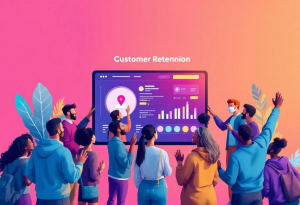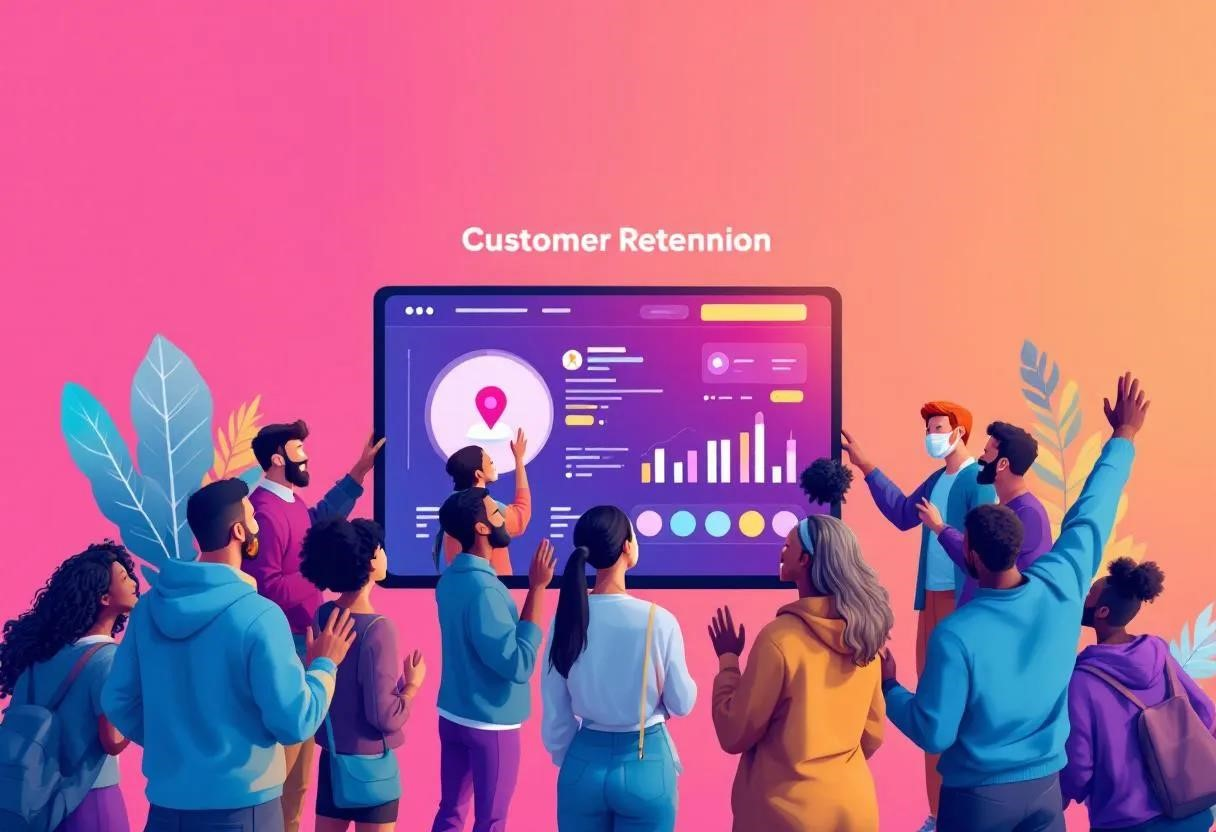Alright, buckle up, because we’re diving headfirst into the world of AI and e-commerce. I’m Mark Olsen, and for years, I’ve watched businesses just like yours try to keep up with the breakneck pace of the digital world. The thing is, AI isn’t just another shiny new toy; it’s changing the entire game. It’s how you connect with customers, how you drive sales, and honestly, how you survive.
Let’s face it: the online marketplace is a battleground. To stand out, you need more than just a killer product. You need to know your customers inside and out and deliver experiences that feel like they were made just for them. That’s where AI swoops in. Forget robots taking over; this is about supercharging your marketing efforts and making you more effective than ever before.
What the Heck is AI, and Why Should You Care?
In simple terms, AI lets computers learn from data and make decisions without someone constantly telling them what to do. For e-commerce, this means having incredibly powerful tools that can analyze customer behavior, predict what’s coming next, and automate all those boring, repetitive tasks that eat up your time. We’re talking machine learning (ML) – algorithms that get smarter over time – and natural language processing (NLP) – which lets computers understand and respond to human language like you and me.
Imagine this: instead of relying on hunches and gut feelings, you can use AI to truly understand each customer’s unique needs. Think hyper-personalized product recommendations that hit the mark every time, dynamic pricing strategies that maximize your revenue, and customer service interactions that feel genuinely helpful. This isn’t just about small improvements; it’s about unlocking a whole new level of efficiency and making your customers actually happy.
Personalization: The Secret Sauce to Customer Loyalty
In today’s online world, personalization isn’t a luxury; it’s the price of entry. Customers expect to feel understood and valued. AI-powered personalization lets you create tailored experiences that resonate with each shopper, turning them into loyal fans who keep coming back for more.
Here’s how AI is changing the personalization game:
- AI-Driven Recommendations: You know that feeling when Amazon suggests something you actually want? That’s AI in action. These algorithms analyze everything – browsing history, purchase patterns, even social media activity – to predict what products a customer is most likely to buy. This goes beyond simple “you might also like” suggestions. It anticipates their needs.

- Personalized Email Campaigns: Ditch the generic email blasts. AI lets you segment your audience based on demographics, behavior, and purchase history. This allows you to craft personalized email campaigns that speak directly to their interests. Imagine sending a discount on running shoes to someone who just bought workout gear, or offering a free gift to a loyal customer who hasn’t shopped in a while. That’s smart marketing.
- Dynamic Content Personalization: AI can even change your website content based on who’s visiting. This means showing different product images, headlines, and calls to action to different customers, ensuring that everyone sees a version of your website that’s relevant to them.
Bottom line? Personalization isn’t just about making customers feel good; it’s about driving real results. Personalized experiences can boost conversion rates, increase average order values, and skyrocket customer lifetime value.
Automation: Making Your Life Easier (and More Efficient)
AI isn’t just about personalization; it’s also revolutionizing e-commerce marketing through automation. By automating repetitive tasks and streamlining marketing processes, AI frees you up to focus on the big picture – developing creative campaigns and building brand awareness.
Here’s where AI is making waves in e-commerce automation:
- Chatbots and Virtual Assistants: AI-powered chatbots can handle all sorts of customer service inquiries, from answering basic questions about products and shipping to resolving more complex issues. This not only makes customers happier but also frees up your human agents to tackle the tough stuff.
- Dynamic Pricing: AI algorithms can analyze market trends, competitor pricing, and customer demand to automatically adjust prices in real-time, maximizing revenue and boosting profitability. This is especially useful for products with fluctuating demand or limited inventory.
- Inventory Management and Supply Chain Optimization: AI can analyze sales data and predict future demand, helping you optimize inventory levels and avoid those dreaded stockouts. It can also help you streamline your supply chain by spotting potential problems and optimizing logistics.
- Visual Search: AI-powered visual search lets customers find products by simply uploading an image. This is a game-changer for fashion and home decor, where customers might not know the exact name of what they’re looking for.
Think about the time and money you can save by automating these tasks! Instead of manually tracking inventory or answering routine customer inquiries, you can focus on growing your business and developing innovative marketing strategies. It’s about working smarter, not harder.
Examples in the Wild: AI Success Stories
Let’s take a peek at a couple of companies that are crushing it with AI in e-commerce:
- ASOS: This online fashion giant uses AI to personalize product recommendations, offer style advice, and even help customers find the perfect fit.
- Sephora: Sephora uses AI-powered virtual assistants to provide personalized beauty advice and help customers find the right products for their skin type and concerns.
These are just a few examples, but they show the incredible potential of AI to transform the e-commerce experience.
The Not-So-Fun Part: Challenges and Considerations
While AI offers incredible benefits, there are also some challenges to keep in mind:
- Data Privacy: Collecting and using customer data responsibly is essential. You need to be upfront about how you’re using data and ensure you’re following all the privacy rules.
- Bias: AI algorithms can be biased if they’re trained on biased data. It’s important to be aware of this and take steps to fix it.
- Implementation Costs: Implementing AI solutions can be expensive, especially for smaller businesses. Weigh the costs and benefits carefully before investing.
Don’t let these challenges scare you off. The key is to start small, focus on areas where AI can make the biggest impact, and gradually scale up as you gain experience and see results. Think of it as a marathon, not a sprint.
Ready to Get Started? Your AI Action Plan
Ready to jump into the AI revolution? Here’s a simple plan to get you started:
- Identify your biggest headaches: What’s slowing you down? What tasks are eating up too much time? These are perfect areas to explore AI solutions.
- Explore the AI toolbox: There are tons of AI tools out there for e-commerce, from recommendation engines to chatbot platforms. Do your homework and find tools that fit your specific needs and budget.
- Start with a small test: Don’t try to overhaul your entire business at once. Start with a small pilot project to test the waters and see what works best for you.
- Track everything: Measure the impact of your AI initiatives and make adjustments as needed. Data is your best friend!
The Future is Here (and It’s Powered by AI)
AI isn’t some far-off dream; it’s a reality that’s reshaping e-commerce right now. By embracing AI-driven personalization and automation, you can create more engaging customer experiences, streamline your marketing, and ultimately, sell more stuff. Don’t get left behind!
What are your thoughts on AI in e-commerce? I’d love to hear your experiences and questions in the comments below.
Disclaimer: I’m a Senior Marketing Manager at Innovate Solutions. My opinions are my own and don’t necessarily reflect the views of my employer.





